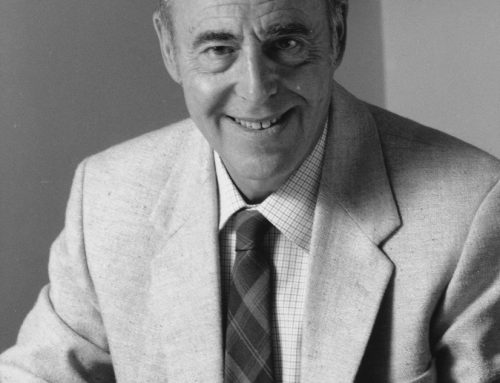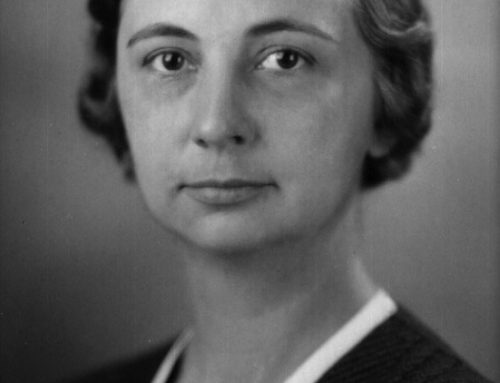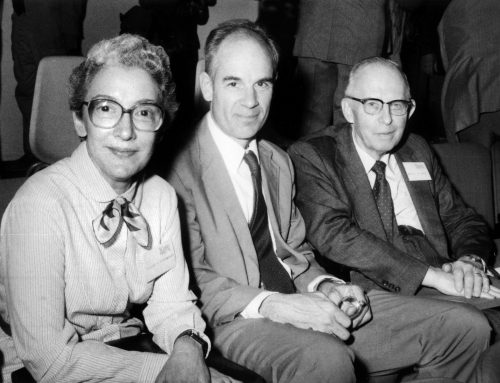In celebration of Women’s History Month, the Markus Library is pleased to introduce The Lost Women of Science Initiative , a 501(c)3 non-profit organization with two related missions: to tell the forgotten stories of female scientists who made groundbreaking achievements in their fields and to inspire girls and young women to embark on careers in STEM.
The Initiative’s flagship is the Lost Women of Science podcast, which, through deep reporting and rich storytelling, revisits the historical record one extraordinary scientist at a time.
Season 5 podcast brings you the story of Marie Nyswander, an adjunct professor at The Rockefeller University from 1964 to 1986, who helped develop the use of methadone to treat heroin addiction and the radical treatment that would upend the landscape of addiction for decades to come.
Dr. Nyswander was born in Reno, Nevada on March 13, 1919, and graduated from Sarah Lawrence College in 1941 and from the Cornell University Medical College in 1944. In 1945 she entered the Public Health Service and found herself working with patients with substance use disorder at the hospital in Lexington, Ky. At that time the method used for treating addiction was abrupt detoxification, a wrenching and often violent process. ”It wasn’t very pleasant,” Dr. Nyswander once said of her time in Kentucky.
In 1956 her book, The Drug Addict as Patient, which advocated treating drug addiction as a medical problem, established Dr. Nyswander as an expert on addiction. In New York City in 1959, she became chairman of the research committee of the Mayor’s Advisory Board on Narcotics.
In 1964 Dr. Nyswander was invited by Dr. Vincent P. Dole, then a senior physician at Rockefeller Hospital, to join a research group he had established to study the biology of addictive diseases. The group came upon methadone as a means of treating heroin addiction in 1964 while trying to wean two patients in recovery from morphine. By giving high ‘maintenance doses’ of methadone, they found they could free patients from many of the disabling effects of their addiction and enable them to rebuild their lives.
These early studies determined that methadone is long-acting in humans, relieves the patients’ craving for heroin, and prevents withdrawal symptoms. In addition, methadone itself does not produce euphoria, and through the mechanism of cross-tolerance, it prevents people with substance use disorder from feeling any “high” from an injection of heroin—a phenomenon the team called “narcotic blockade.” The patients in recovery needed to take one oral daily maintenance dose which allowed them to function normally. In 1965, translational studies of methadone maintenance treatment involving additional patients were conducted by Nyswander at what was then Manhattan General Hospital.
Marie Nyswander Changed the Landscape of Addiction. Here’s How Her Story Begins.
By Katie Hafner, Carol Sutton Lewis, The Lost Women of Science Initiative on March 30, 2023




